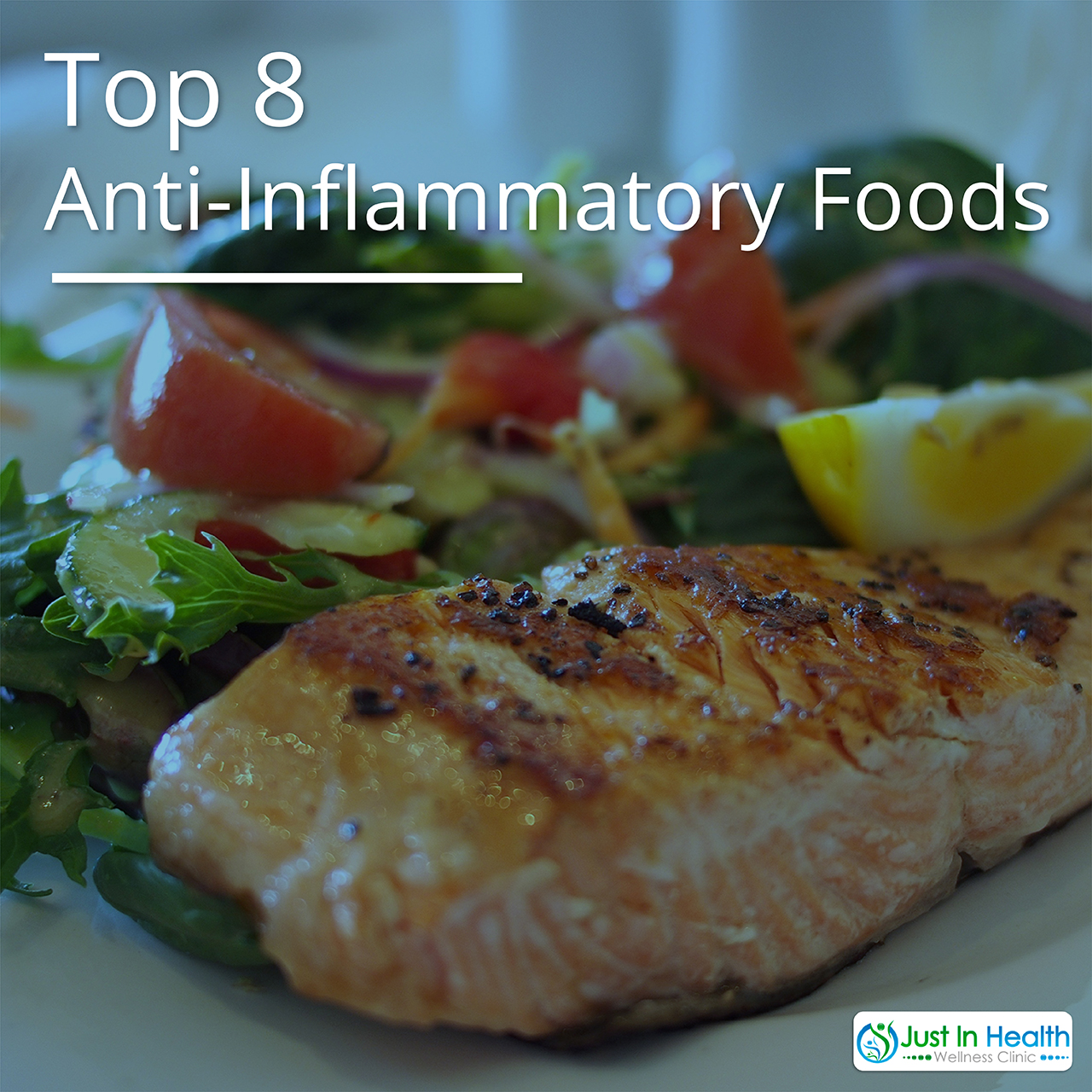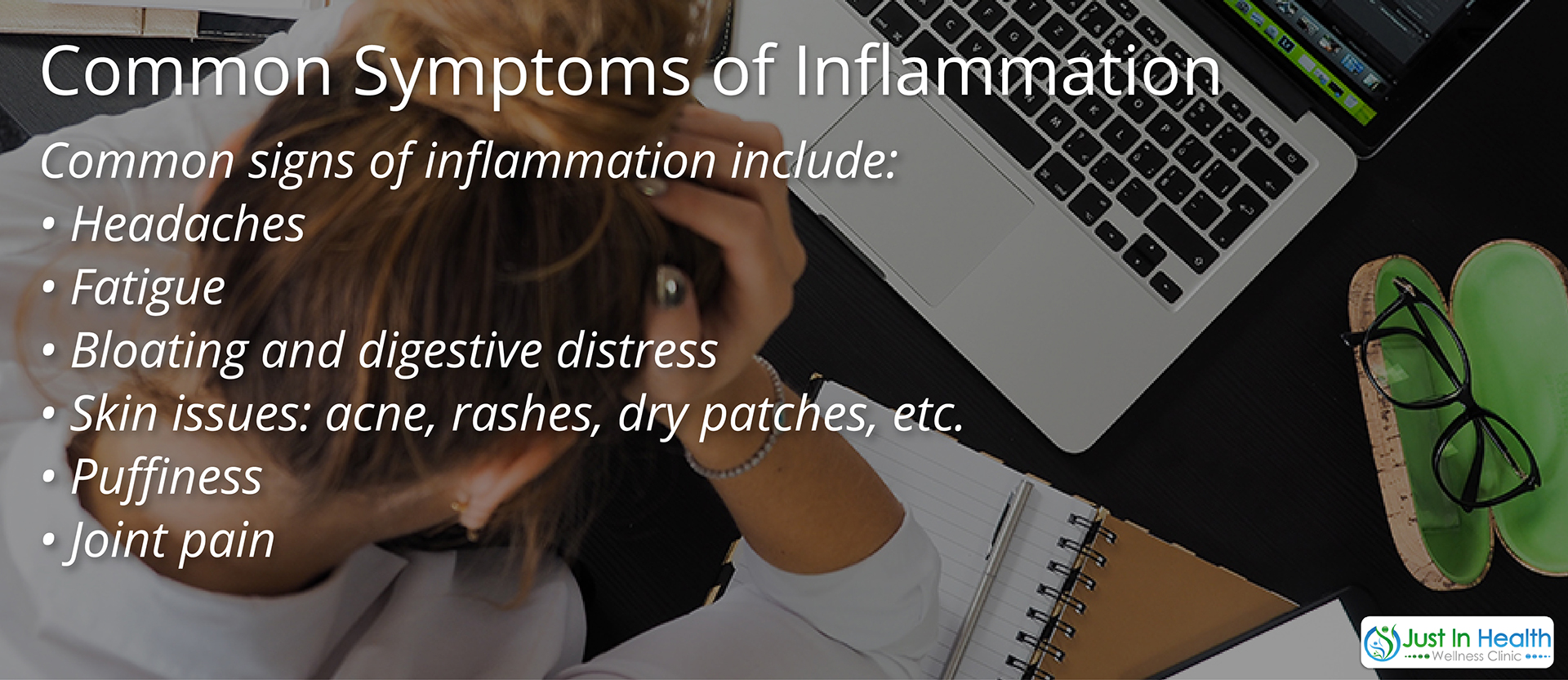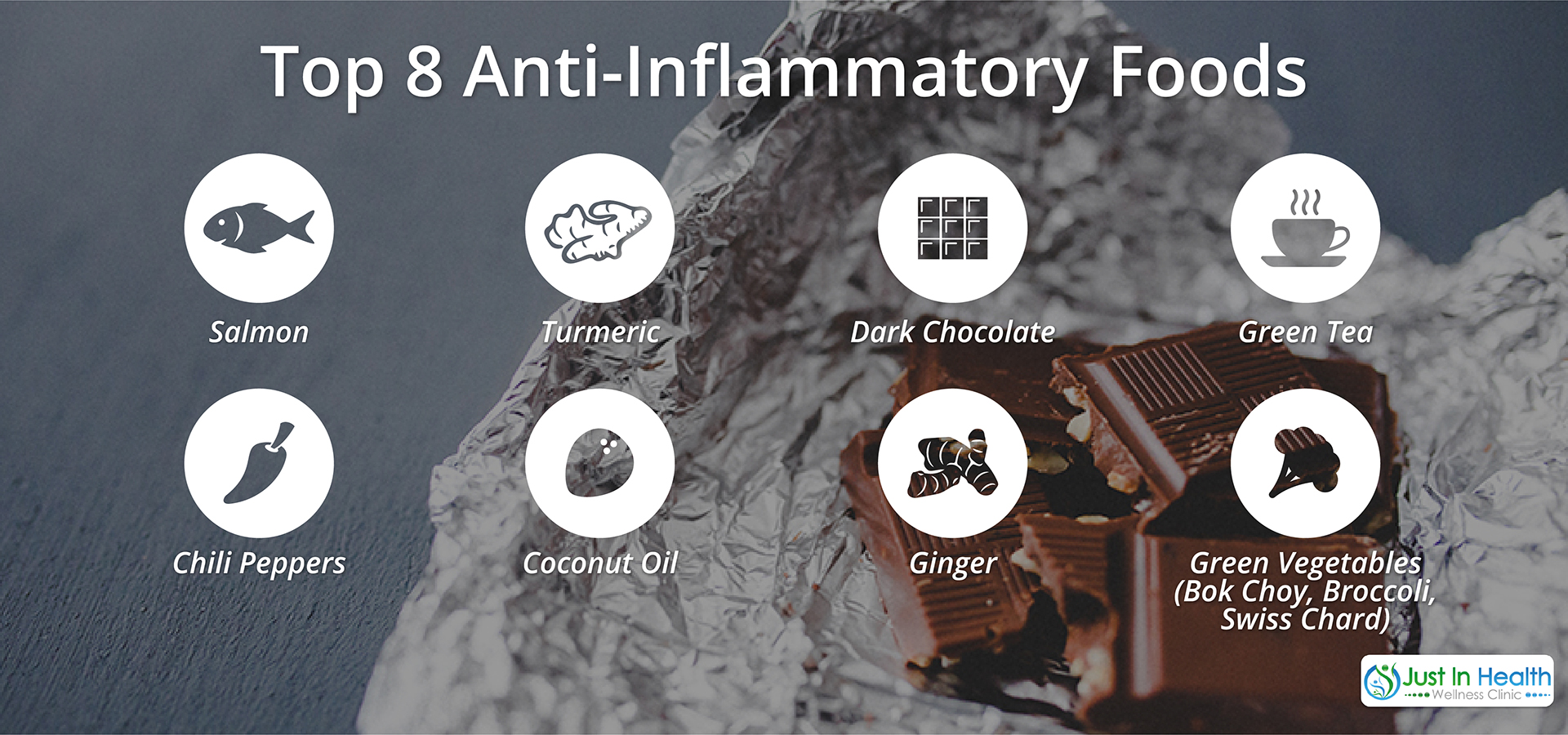

By Dr. Justin Marchegiani
Inflammation is considered the root cause of virtually all modern diseases. As people discover the scary side effects of pharmaceutical anti-inflammatory drugs, they are beginning to seek out natural solutions. Today we are going to learn more about inflammation and the top foods to reduce inflammation!

If you have ever injured yourself and the area became warm and swollen, you’ve experienced ‘healthy’ inflammation. This is the normal process of your immune system healing your body. However, when the immune system goes into overdrive and starts attacking healthy cells and tissues, we are met with a case of unhealthy inflammation.
Common signs of inflammation include:
If inflammation is ignored, it becomes a chronic issue that can lead to debilitating conditions and diseases. Chronic inflammation leads to autoimmune disease, premature aging, irritable bowel syndrome, arthritis, and even cancer!

By incorporating the following foods into your diet, you can eat your way back to full health!
The omega-3 fatty acids in fish oil and fish such as wild-caught salmon have been shown to be some of the most effective anti-inflammatory agents available. In fact, the American Heart Association recommends fish oil supplements to prevent the vascular inflammation that causes heart disease! Adding wild-caught salmon, herring, sardines, and anchovies to your diet is a great way to get the omega-3s DHA and EPA that reduce inflammation.
Turmeric’s active component curcumin has been used for centuries as an anti-inflammatory agent in Ayurvedic and Chinese medicine. Because of its ability to inhibit inflammation, curcumin has been studied as a treatment for colitis, chronic neurodegenerative diseases, arthritis, and cancer. Turmeric can be used as a spice in your food, enjoyed as a tea, or you can even take pure curcumin as a supplement!
You may have heard of resveratrol as an antioxidant in red wine. However, there are several more delicious places you can find this phytonutrient, such as in dark chocolate. Resveratrol has been shown to protect DNA, protect cells from free radicals, and fight inflammation. Resveratrol has also been studied for its ability to treat arthritis and joint pain! If you’re craving something sweet, dark chocolate (80% cacao or higher) is a delicious option that has the power to heal your body.
Green tea’s antioxidant properties have made it a popular method of cardiovascular and cancer prevention. It’s anti-inflammatory properties have only recently been discovered, but it is theorized that the increased green tea consumption in Asia may play a significant role in the reduced instances of cardiovascular disease, cancer, and lower rates of neurocognitive decline.
Chili peppers have been used for centuries by native peoples for their medicinal properties. The anti-inflammatory capsaicin in chili peppers has a bonus ability: it works as a painkiller, too!
Coconut oil has become a star because of its amazing health benefits and other uses. Coconut oil is full of healthy fats which help burn body fat and improve brain function. It is also anti-inflammatory, making it a staple in my kitchen as well as my cooking oil of choice!
Ginger provides a major boost to your immune system, and has been used in Ayurvedic medicine for centuries for its healing properties. It’s ability to modulate the immune system makes ginger a powerful weapon against inflammation.
Green vegetables are high in antioxidants that fight free radicals and reduce inflammation. Not to mention the insane amount of vitamins and minerals they provide to heal and nourish your body! Green vegetables protect against oxidative stress and prevent and reduce inflammation in the body.

We have become aware of the dangerous side effects of pharmaceutical drugs such as steroids and NSAID medications, for example, stomach bleeding, heart attack, and stroke. Because of the life-threatening side effects of these drugs, it’s important to seek out alternative methods of treatment, such as the foods and herbs listen in this article.
However, your diet is also important to consider: diet is a huge factor determining not only your level of inflammation, but your overall health as well! Processed foods, sugar, alcohol, and any food intolerances must be limited/avoided in order to keep inflammation low.
References:
https://www.ncbi.nlm.nih.gov/pubmed/26400429
https://www.ncbi.nlm.nih.gov/pmc/articles/PMC3011108/
https://www.ncbi.nlm.nih.gov/pubmed/21139128